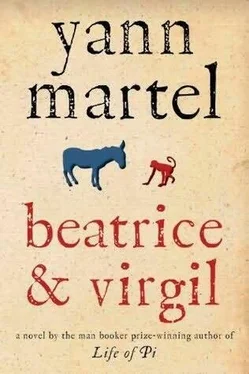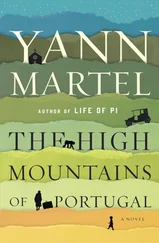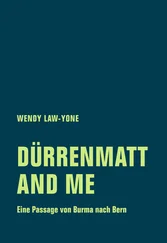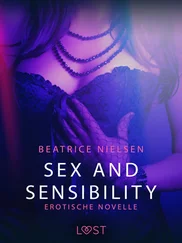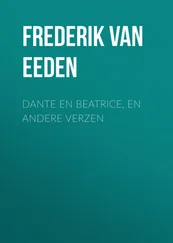Yann Martel - Beatrice and Virgil
Здесь есть возможность читать онлайн «Yann Martel - Beatrice and Virgil» весь текст электронной книги совершенно бесплатно (целиком полную версию без сокращений). В некоторых случаях можно слушать аудио, скачать через торрент в формате fb2 и присутствует краткое содержание. Жанр: Современная проза, на английском языке. Описание произведения, (предисловие) а так же отзывы посетителей доступны на портале библиотеки ЛибКат.
- Название:Beatrice and Virgil
- Автор:
- Жанр:
- Год:неизвестен
- ISBN:нет данных
- Рейтинг книги:5 / 5. Голосов: 1
-
Избранное:Добавить в избранное
- Отзывы:
-
Ваша оценка:
- 100
- 1
- 2
- 3
- 4
- 5
Beatrice and Virgil: краткое содержание, описание и аннотация
Предлагаем к чтению аннотацию, описание, краткое содержание или предисловие (зависит от того, что написал сам автор книги «Beatrice and Virgil»). Если вы не нашли необходимую информацию о книге — напишите в комментариях, мы постараемся отыскать её.
A famous author receives a mysterious letter from a man who is a struggling writer but also turns out to be a taxidermist, an eccentric and fascinating character who does not kill animals but preserves them as they lived, with skill and dedication – among them a howler monkey named Virgil and a donkey named Beatrice…
Beatrice and Virgil — читать онлайн бесплатно полную книгу (весь текст) целиком
Ниже представлен текст книги, разбитый по страницам. Система сохранения места последней прочитанной страницы, позволяет с удобством читать онлайн бесплатно книгу «Beatrice and Virgil», без необходимости каждый раз заново искать на чём Вы остановились. Поставьте закладку, и сможете в любой момент перейти на страницу, на которой закончили чтение.
Интервал:
Закладка:
… lake… beaver… his arrow killed it…
Then came a longer section that his reader had marked out:
Then he entered an avenue of tall trees whose tops formed a kind of triumphal arch leading into the forest. A deer leapt out of a thicket, a buck appeared in a clearing, a badger emerged from a hole, a pheasant on the grass spread its tail, and when he had slain them all, more deer appeared, more bucks, more badgers, more pheasants, and blackbirds, jays, ferrets, foxes, hedgehogs, lynx, an infinite variety of animals, more numerous with each step he took. They circled around him, trembling, gazing at him with gentle, pleading eyes. But Julian had not tired of killing, and again and again he drew his crossbow, unsheathed his sword and thrust with his knife, thinking of nothing, remembering nothing. He lived only for the instant, a hunter in an unreal landscape where time had lost all meaning and where everything was happening with dreamlike ease. An extraordinary sight stopped him short: a small valley shaped like an amphitheatre and filled with deer. The animals were huddled together, warming one another with their breath, which hung like a cloud in the surrounding mist.
The prospect of such carnage left him breathless with joy for several minutes. He dismounted, rolled up his sleeves and started to shoot.
At the whistling of the first arrow, all the stags turned their heads in unison. Gaps appeared in their ranks, plaintive cries rose up, and a great agitation ran through the herd.
The lip of the valley was too high for them to cross. The hillsides enclosed them and they leapt about frantically, trying to escape. Julian kept aiming and firing, and the arrows fell like rain. The frantic stags collided, bucked and climbed upon each other; their antlers became entangled and they collapsed together in a writhing mass of flesh.
Finally they all died, stretched out in the sand, their nostrils foaming and their entrails spilling out as the heaving of their bellies gradually subsided. Then all was still.
Night was falling, and beyond the woods, in the space between the branches, the sky was as red as a pool of blood.
Julian leaned against a tree. Wide-eyed, he surveyed the enormity of the massacre, unable to understand how he had managed to do it.
On the other side of the valley, on the edge of the forest, he saw a stag with a doe and a fawn.
The stag was huge and black, with massive antlers and a white beard. The doe, pale as the dead leaves, was grazing the grass, and the spotted fawn trotted along beside her, sucking on a teat.
The crossbow hummed again. The fawn was killed instantly. Its mother, looking up at the sky, gave a deep, heart-rending, almost human cry. Beside himself, Julian shot an arrow straight to her breast and brought her to the ground.
The great stag had seen him and it leapt forward. Julian fired his last arrow at the beast. It pierced its forehead and remained stuck there.
His reader's quoting ended there, so to speak. The neon yellow was turned off and the story left to continue on its own. This was curious, because the very next line mentions that the stag was not killed by Julian's last arrow. The stag rather strides up to him, faces him down, and to the sound of a distant bell breaks into speech and damns him with a curse:
"Accursed! Accursed! Accursed! One day, cruel heart, you will murder your father and your mother!"
This element in the story, surely pivotal, did not seem to arouse the curiosity of his reader.
Henry continued skimming through the story. After hearing the stag's curse, Julian forsakes hunting, leaves his parents and wanders the world. He becomes a mercenary, a very capable one, and much military mayhem ensues, costing the lives of many men from many nations, but winning Julian the affection and gratitude of the Emperor of Occitania, whom he had saved from the Caliph of Cordoba. As a reward, he receives the hand of the emperor's daughter. One of the prophecies about Julian, pronounced to his father, has now come to be: he is of the family of an emperor. But none of this seemed to hold his reader's attention.
One last section was marked in yellow, two paragraphs describing longings simmering below the surface of Julian's otherwise contented conjugal life:
Dressed in crimson, he would stand at a window leaning on his elbows, remembering hunts of years gone by and wishing he could ride across the desert after gazelles and ostriches, lie in wait in the bamboo for leopards, cross forests filled with rhinoceros, climb to the summits of the most inaccessible mountains the better to take aim at eagles, and sail the seas to ice floes to fight the white bears.
Sometimes in a dream he would see himself as our father Adam in the Garden of Eden among all the beasts: by stretching out his arm, he would make them die; or they would file past him two by two in order of size, from elephants and lions down to stoats and ducks, like the day they boarded Noah's ark. From the shadows of a cave, he would throw javelins at them, never missing his mark; more animals would come; the slaughter would go on and on;
Precisely there, at a semicolon, his reader stopped, not caring to light up the last sentence of the paragraph, short though it was:
Julian would wake from his dream, his eyes rolling wildly.
The rest of the story passed without comment, the essential part of it, in fact, how Julian comes to kill his parents, as predicted by the stag, and, even more importantly, how a life of sorrow, abnegation and service to others leads him to become the saint announced by the title of the story. No, his reader stayed with the animals and their bloody fate. Of Julian and his redemption, he seemed to have no interest.
Erasmus was yelping, demanding his walk. Henry had phone calls to make, lines to work on, a costume that needed to be found in a vintage clothing store. He put the story down.
He returned to the story a few days later during an afternoon lull at The Chocolate Road, paying attention to the story as a whole rather than just the parts highlighted by his reader. There was a curious imbalance in the story, with one key element left hanging and unresolved. The dual character of Julian, compassionate yet murderous, made sense in the story's human realm. In his mercenary days, for example, his deeds are violent but they take place within a moral framework. So, "in turn he came to the aid of the Dauphin of France and the King of England, the Knights Templar of Jerusalem, the Surena of the Parthian army, the Negus of Abyssinia and the Emperor of Calicut," and it is implicit that these varied sovereigns deserve his assistance, and thus the need to kill so many enemies. The righteous nature of this spilled blood is made explicit on the same page: "He liberated nations. He rescued queens held captive in towers. It was none other than he who slew the Viper of Milan and the Dragon of Oberbirbach." It is clear that those who oppressed nations and put queens in towers were of the same loathsome ethical stature as the Viper of Milan. The human violence, then, is directed by a moral compass, navigating Julian on a path of lesser evil in which, if there needs to be killing, it is better that those killed be culpable "Scandinavians covered in fish scales… Negroes armed with round shields of hippopotamus hide… Troglodytes… Cannibals," rather than noble dauphins, kings, and Knights Templar of Jerusalem. And this, the use of the compass of morality in times of violence, made sense. Indeed, it is precisely at such times that it must be used.
After Julian kills his parents, slaying them as they sleep in his own bed, mistaking them for his wife and a lover, not knowing that his wife has invited them to rest there, he is keenly aware of the enormity of what he has done. Remorse overwhelms him. His moral compass is spinning.
Читать дальшеИнтервал:
Закладка:
Похожие книги на «Beatrice and Virgil»
Представляем Вашему вниманию похожие книги на «Beatrice and Virgil» списком для выбора. Мы отобрали схожую по названию и смыслу литературу в надежде предоставить читателям больше вариантов отыскать новые, интересные, ещё непрочитанные произведения.
Обсуждение, отзывы о книге «Beatrice and Virgil» и просто собственные мнения читателей. Оставьте ваши комментарии, напишите, что Вы думаете о произведении, его смысле или главных героях. Укажите что конкретно понравилось, а что нет, и почему Вы так считаете.
